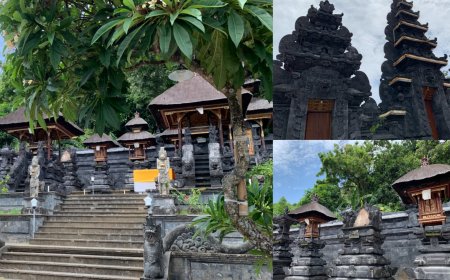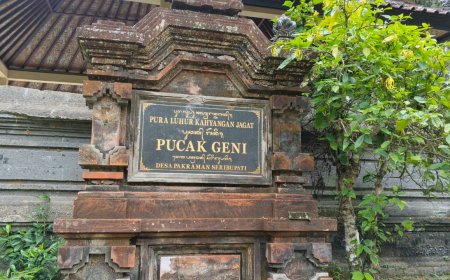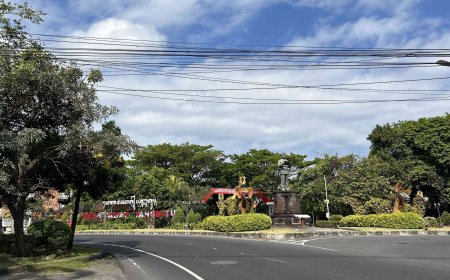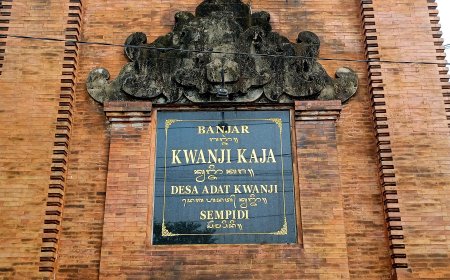The myth of Bengkala Village is that its Residents are Deaf and Mute Because of a Curse
The charm of Bali tourism always makes tourists feel at home visiting many times. Not only does Bali have exotic beaches and temples, Bali also has many unique villages. Like Bengkala Village in North Bali for example. Here, stories about a curse that makes its citizens mute and deaf have become an inseparable part of everyday life.
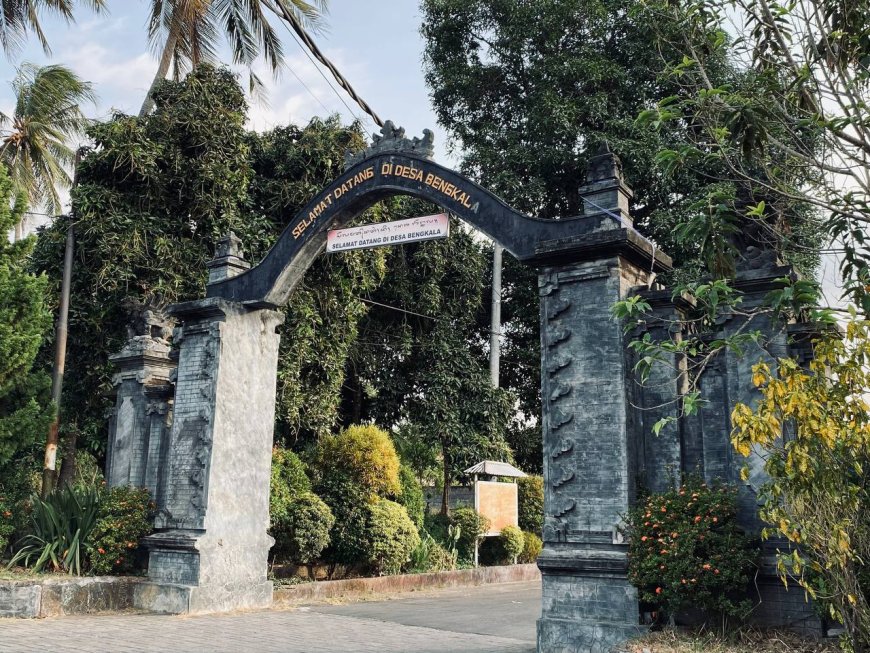
Bengkala Village is one of the villages located in Kubucepatn District, Buleleng Regency. Bengkala Village is around 15.6 kilometers from the center of Singaraja city and approximately 100 kilometers from Denpasar City. This village has history and uniqueness that may be difficult to find in other areas.
Bengkala Village is often referred to as a special village because it has a fairly large deaf and mute community. About 2% of the total population of Bengkala Village were born kolok or deaf and dumb. Bengkala Village is often referred to as Kolok Village. Bengkala Village also has a special school as a special school that teaches sign language which is used in Bengkala Village.
However, before we investigate further the story of the kolok in Bengkala, there are several origins of the name Bengkala village that are believed by Bengkala village residents, one of which is that it was previously believed that Bengkala people were always nomadic, aka nomadic. They are immigrants. Then they settled in Bengkala, and next door to Batu Pimula Village, which is now known as Bila Village. It is said that the ancestors of Bengkala village were often invited to pig fights by Bila village. When invited to fight pigs, people from the villages of Bila or Batu Pimula bring out bangkal or mother pigs. Then the Bengkala party plotted to bring the piglets, then when they were pitted against them the piglets (kucit) immediately looked for the mother pig (bangkal) and wanted to suckle. So Bangkal ran away until this village was given the name Bangkala, which describes this event.
There is also another version which says that the name Bengkala comes from the words 'Bang' and 'Kala'. 'Bang' means red, and 'Kala' means time. According to the story of the elders, there were looters from outside Bali who came to Bengkala and asked the local residents, but did not get answers because the language was not understood. Most likely this looter had a high stature, so the local residents cursed him, and this village was given the name Bang Kala, because of his arrival when the red sun set in the western horizon, according to local mythology.
As a symbol of this event, in Bengkala Village there is the Ratu Bawi Temple at Puseh Temple. This palinggih is used in the Nedeh ceremony, and although it was originally known as the Nandi Statue which symbolizes Shiva, its shape is similar to that of a pig. Therefore, people who own pigs often come to the Mostgih Ratu Bawi to give offerings to keep their livestock healthy.
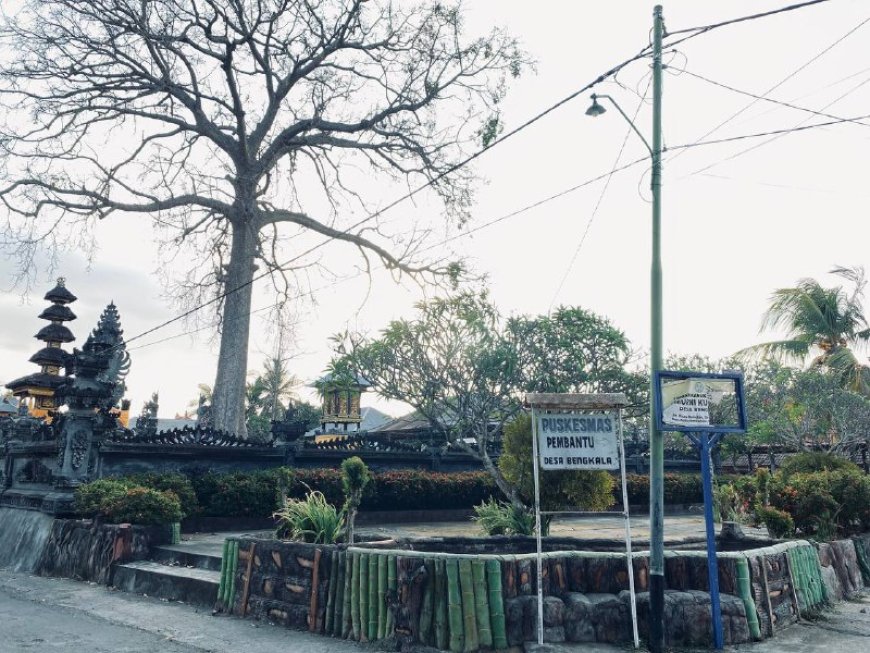
Bengkala Village Atmosphere (Source : Private Collection)
Regarding society, the majority of which are deaf and deaf, of course it raises questions about why this could happen. Apparently, there is a myth that developed into folklore involving a curse from Sri Maharaja Jayapangus as a result of the people of Bengkala refusing to pay various types of taxes to the kingdom. This rejection then led to resistance in the form of speech strikes and work strikes.
However, when we discuss the existence of the kolok people in Bengkala, we must also refer to the Bengkala Inscription, the exact date of which is unknown. This inscription reveals that the people of Bengkala Village were treated unfairly by tax collectors from the kingdom in Indrapura. They were required to pay 27 types of taxes, and the arbitrary attitude of these tax collectors caused the people of Bengkala to revolt. They refused to talk, work, and even ignored Maharaja Jayapangus' orders. As a result, they were cursed to become kolok (deaf-mute) for a thousand years.
Was the curse from Maharaja Jayapangus really what made most of the people of Bengkala turn colok? Local people may not be able to confirm this. Apart from the mythological angle, the existence of the kolok people in Bengkala has also been investigated scientifically. Medical research conducted by John Hinan from Archipelago University, United States, in 1993, showed that from 200 blood samples taken from the Bengkala community, there was a possibility of kolok descent.
Another study in 1995 revealed that this hearing disorder was included in the category of congenital deafness, namely a hearing disorder that has been present since birth. Another study in 1998 stated that the hearing impairment experienced by kolok residents in Bengkala Village was a genetic disorder.
Even though Bengkala Village is often used as an object of research, so far residents still believe that the chaos that occurred was caused by a curse. As long as the kolok people are still in Bengkala Village, residents believe that the curse has not disappeared. However, this is an advantage for the village, the kolok residents in Bengkala Village receive special treatment. They are not ostracized, in fact their position remains equal to other residents with normal physical bodies. People with disabilities are given the freedom not to participate in mutual assistance and are required to make contributions to support religious ceremonies.
Not only does it get special treatment, Bengkala Village also has a world-famous traditional art, namely the Janger Kolok Dance. All the dancers are kolok, aka dumb and deaf. The establishment of janger kolok was due to the uniqueness of the janger dance, namely a dance accompanied by singing. However, in this Janger Kolok dance, what is sung is not the same as singing like usual janger, this janger is danced only using sign language as accompaniment. This is what differentiates the Janger Dance from the Janger Kolok Dance which is performed by people with disabilities from Bengkala Village.
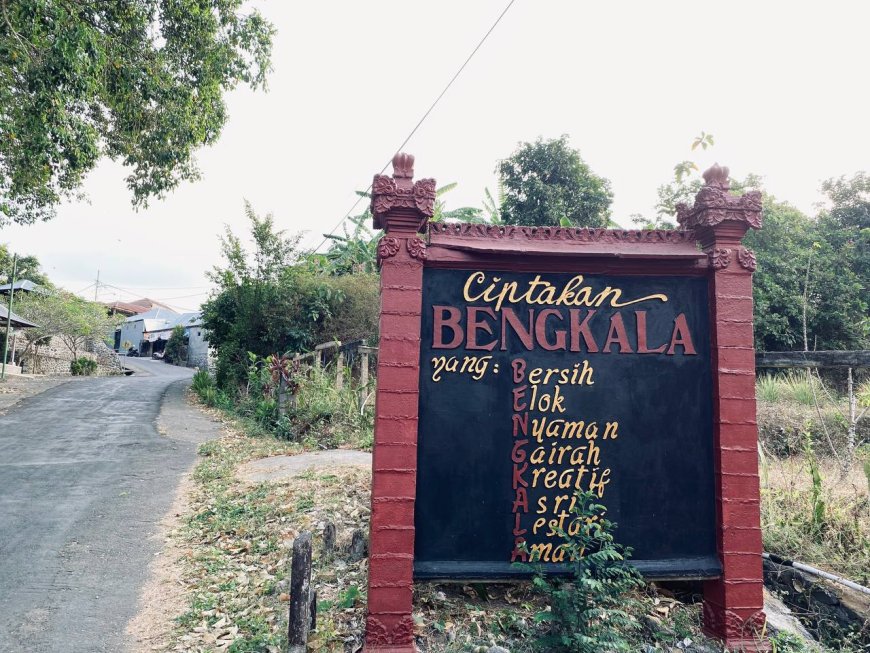
Bengkala Village Monument (Source : Private Collection)
So, this hearing problem has a genetic basis. Even if a husband and wife are normal, their child can still be born with a hearing disorder. Or parents who have hearing impairments can also have children without the impairment. However, apart from that, the people of Bengkala village still believe in the curse of Sri Maharaja Jayapangus.



